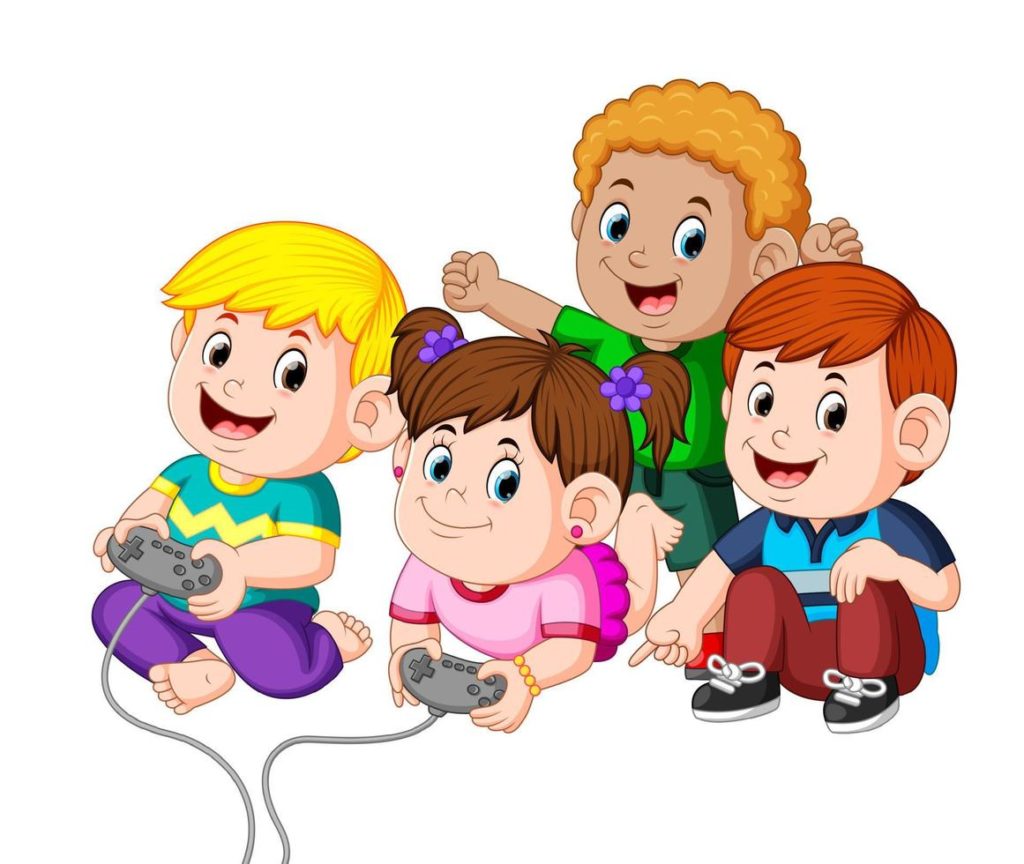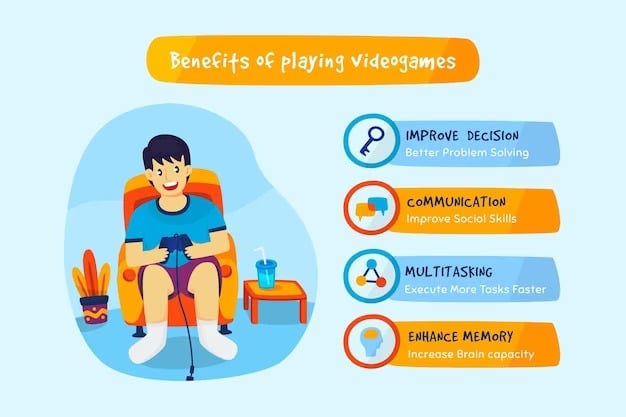When I was twenty-two years old, I wanted two things: 1. To be understood. 2. For people to think I was good at my job....Read more
Teaching kids through games can transfer the passion for learning into an enjoyable adventure. Games offer hands-on gaining knowledge of studies. Kids get to use the standards they have learned really. Kids are gaining knowledge of procedures more powerful. Games frequently come with challenges and also teach patience to kids. This regular growth in issues helps kids in texture and fixing the problem abilities.
Using games is the best way to educate children. Here are some suggestions:
Teach kids to play some educational games as well as fun. This approach can grow their hobby and they will discover exciting things. Different games like puzzles, color paintings, formation games help kids to understand different concepts and be positive. Quiz games which include ‘Quiz’ or ‘Shoe Shoot’ can help kids solve questions.
Group games, including ‘combat’ or ‘fly sport’ also attract kids and are a suitable manner to teach kids as they expand their skills. Give children the opportunity to self-educate through their very own play games. For example, through participating in road cricket, taekwondo, or different sports activities, they can study man or woman and organization skills. Sending kids to the park or outside to play improves their proper-being and they learn via using bodily abilities

Multiplayer games inspire teamwork and collaboration. Kids discover ways to talk effectively: percentage ideas and paintings together towards a commonplace aim. Games typically provide immediate feedback, allowing kids to properly recognize and correct their errors. This is quickly the studying manner.
How Can Games Be Used In Teaching?
How games may be used effectively in teaching:
Engagement and Motivation
Games captivate students’ attention by providing interactive and fun reviews. This engagement continues to be prompted to analyze. as they may be having entertainment even as obtaining new understanding.
Active Learning
Games encourage active participation. Instead of passively responce up statistics, students actively engage with principles. Central to higher understanding and maintenance.
Problem-Solving Skills
Many video games contain solving puzzles, making choices, and strategizing. This fosters crucial wondering and problem-solving abilities as students analyze situations. And broaden creative solutions.
Personalized Learning
Games can adapt to college students’ skill stages and pace. This customized technique guarantees that each student gets a tailor-made learning experience. Hear them correctly.
Collaboration and Communication
Multiplayer games encourage teamwork and conversation. Students learn how to work together. Share ideas, and speak techniques, enhancing their social and interpersonal competencies.
Application of Concepts
Games permit college students to apply theoretical information in realistic scenarios. This bridges the space between ideas and real-world utility, reinforcing their knowledge.
Emotional Resilience
Facing challenges and setbacks in video games teaches students to address frustration. And develop emotional resilience. They examine that perseverance results in achievement, a vital existence skill.
How Do You Play Games With Kids?
- Choose Age Appropriate Games. Consider your infant’s age and pastimes while deciding on video games. Opt for ones that suit their developmental level and seize their interest.
- Create a Comfortable Environment. Find a snug and quiet area where you can play without distractions. This facilitates your baby’s attention and helps them enjoy the game more.
- Explain the Rules. Take time to explain the rules of the sport easily and understandably. This prevents confusion and frustration afterward.
- Prove First. If it is a new sport, display how to play. Children regularly learn with the aid of watching. So show them how the game works before they attempt it themselves.
- Be Patient. Remember, children are nevertheless learning. Be patient and supportive. Especially if they need help with some aspects of the game.
- Let Them Lead. Allow your toddler to take the lead in choosing games and making selections at some stage in the sport. This empowers them and makes them feel more excellent and concerned.
- Encourage Creativity. Some games might have rules, but be bold and let your toddler express their creativity. And give you their versions of the sport.
- Celebrate Efforts. Focus on the procedure in place of simply the final results. Celebrate your infant’s efforts, whether they win or not. This helps build their confidence and advantageous mindset in the direction of challenges.
- Keep it Fun. The primary intention is to have fun collectively. Laugh, enjoy, and make superb reminiscences simultaneously, as gambling games with your child.
Quick games to play in a classroom?
you can play in a classroom setting. Here are a few thoughts from a trainer’s angle:
- Two Truths and a Lie. Have every scholar come up with actual statements approximately themselves and one false assertion. The elegance then tries to guess which word is the lie. This sport is not the simplest fun but also a terrific way for college kids to get to know each other better.
- Brain Teasers. Start the elegance with a mind teaser or a riddle. It receives students wondering critically and energized for the lesson ahead. You can locate age-suitable brain teasers online or create your personal.
- Charades. Divide the class into teams and feature students taking turns performing a phrase. Or words related to the lesson. It’s a funny way to boost vocabulary and ideas.
- Quick Draw. Give students a word related to the problem you’re coaching. And ask them to quickly draw a representation of it on the board. This taps into their creativity and helps give a boost to visual knowledge.
- Trivia Quiz. Prepare a short quiz with questions related to the topic you are protecting. Break the elegance into teams and make it a pleasant competition. It’s a powerful way to review and determine their know-how.
- Pass the Ball. Form a circle and toss a tender ball to a student. When they trap it, they want to reply to a query related to the lesson. Then, they throw the ball to another pupil with a new question.
- Word Association. Start with a word related to the lesson. Each student takes turns pronouncing a phrase associated with the preceding word. It’s an exceptional vocabulary-building recreation.
Are you learning through game examples?
How getting to know through games can painting help :
Create bingo cards with math issues instead of numbers. Call out equations, and students mark the answers on their playing cards. It’s a fun manner to practice math operations while playing a familiar sport.
Adapt the traditional Scrabble game for spelling practice. Students create phrases associated with the lesson and the usage of letter tiles. And earn points based on phrase duration. And complexity.
Set up a treasure hunt across the classroom or faculty grounds where students want to follow clues related to geographical facts. This sport reinforces map-reading competencies and geographical knowledge.
Create a Jeopardy-style quiz game with questions associated with technology standards. Divide the magnificence into teams. And let them compete to reply to questions and earn points.
Have students work in agencies to create a timeline of ancient activities on big pieces of paper. This recreation helps them recognize the chronological order of old occasions.
Choose vocabulary phrases or phrases from the language being learned. Students take turns acting them out even as others bet the correct word or phrase in that language.
Divide the class into teams. Show a chunk of artwork related to a particular artist or art movement. Students take turns drawing factors of the artwork on a whiteboard. At the same time, their teammates guess the artist or motion.
Assign college students characters from a tale or play you’re analyzing. Have them act out scenes or interact in dialogues as the one’s characters.
Advantage of the game’s method of teaching?
The usage of video games as a coaching method gives several blessings. Which could significantly benefit each student and educator:
- Engagement. Games seize college students’ attention and make mastering enjoyable. This heightened engagement results in higher awareness, participation, and standard enthusiasm for learning.
- Active Learning. Games encourage lively participation instead of passively receiving information. College students are actively involved in problem-solving, critical wondering, and choice-making.
- Retention and Understanding. Concepts found through games are often retained higher because of emotions—and interactive involvement. The experiential nature of video games allows college students to apprehend. And recall facts more fantastic successfully.
- Motivation. Games provide intrinsic motivation. Students are pushed to prevail within the game. And this translates into improved motivation to apprehend the underlying situation.
- Problem-Solving Skills. Many games involve challenges that college students need to assume significantly. And resolve issues creatively. These abilities are transferable to real-lifestyles situations.
- Collaboration and Communication. Multiplayer games inspire teamwork and conversation as students paint collectively to achieve goals. These social talents are critical in each academic and personal context.
- Immediate Feedback. Games regularly offer on-the-spot comments. They are allowing college students to examine their mistakes right away. This feedback loop hurries up the studying method.
- Personalized Learning. Games can adapt to man or women’s ability stages. They are providing a tailored learning experience for every student. This addresses diverse mastering paces and skills.
What are the disadvantages of the game’s method of teaching?
While the use of games as a coaching method has numerous blessings, there are also some potential risks to consider:
- Time Constraints
Games can occasionally take in an enormous quantity of sophistication time, which might restrict the coverage of the curriculum or lesson objectives.
- Lack of Depth
Sometimes, video games might offer an extra superficial. know-how of complicated principles compared to standard teaching strategies. That permits in-depth exploration.
- Lack of Structure
Certain video games lack a clean shape. Maintain clarity amongst students about studying goals and results.
- Competitive Atmosphere
At the same time, healthy competition can be beneficial. It’d create strain or tension in some college students. It is impacting their gaining knowledge of enjoyment negatively.
- They are learning Distractions
In certain instances, college students may also become more targeted on sports instead of academic content. It is leading to a need for more educational time.
- Misalignment with Curriculum
If no longer carefully decided on, video games might not align well with the curriculum. Or she was studying desires. This leads to confusion for college students and teachers.
- Technical Issues
Digital games sometimes encounter technical glitches or require a unique gadget. They are causing interruptions within the studying method.
- Limited Assessment
Some video games might not offer concrete techniques for evaluation. Making it challenging for instructors to gauge student development as it should be.
- Different Learning Styles
While games engage many styles of beginners. They won’t cater to all getting-to-know patterns similarly. They are potentially leaving a few college students disengaged.
What benefits of games in education?
Many advantages of the usage of games in education with you:
- Engagement. Games capture college students’ interest and hold their hobby, making learning more exciting and motivating.
- Active Learning. Games inspire energetic participation, involving students in trouble-solving, decision-making, and crucial thinking.
- Retention. The interactive nature of games enhances memory retention. as college students study through hands-on level.
- Application of Concepts. Games allow students to use theoretical know-how impractical eventualities, reinforcing knowledge. and actual-world application.
- Problem-Solving Skills. Many games involve challenges requiring innovative problem-solving and strategic thinking—nurturing valuable lifestyle competencies.
- Immediate Feedback. Games offer on-the-spot remarks, supporting students in recognizing their errors. And learn from them promptly.
- Collaboration. Multiplayer games sell teamwork and conversation. Fostering social skills and cooperative gaining knowledge.
- Intrinsic Motivation. The enjoyment component of video games taps into intrinsic motivation. We are encouraging college students to analyze out of actual interest.
- Different Learning Styles. Games cater to numerous studying patterns, accommodating visual, auditory, and kinesthetic first-year students.
- Personalized Learning. Adaptive games can alter issue ranges to healthy character student development. I am Presenting a tailored studying experience.
- Confidence Building. Overcoming demanding situations and reaching into video games boosts students’ vanity. And confidence in their competencies.
- Behavioral Development. Games frequently require following policies, showing persistence, and displaying sportsmanship. Helping in personal improvement.
Final Words
The important thing to a successful game primarily. Based mastering lies in considerate integration. They are aligning games with getting to know desires. And ensuring they supplement the general curriculum. When used successfully, games can rework schooling into an enticing dynamic. And effectively getting to know the experience.

Related Articles About Kids:
- Why Are Kids So Energetic
- Being Yourself Around Kids
- Why Are Kids So Loud
- Can Kids Eat Beer Battered Fish
- Why Are Hoodies So Comfortable

When I was twenty-two years old, I wanted two things: 1. To be understood. 2. For people to think I was good at my job. As a first time founder, I remember feeling under-qualified. I felt like an impostor—and it showed. I struggled to communicate my value in a way that my colleagues and potential investors could understand. I realized I needed to clarify my message and use social media as a tool to help me build my personal brand. This would help me look more credible, I thought. So I got to work. I updated my social media profiles, built a personal website, and began sharing my story online. The more content I shared, the more confident I became. And the more confident I became, the more credible I appeared. Now i am writing blogs for madeforkids.co.uk on different topics on kids.
- Latest Posts by Anna Vatuone
-
What Are The Uses Of A Drone
- -
What Are The Uses Of Playhouse
- -
How To Get A Child To Warm Up To You
- All Posts
